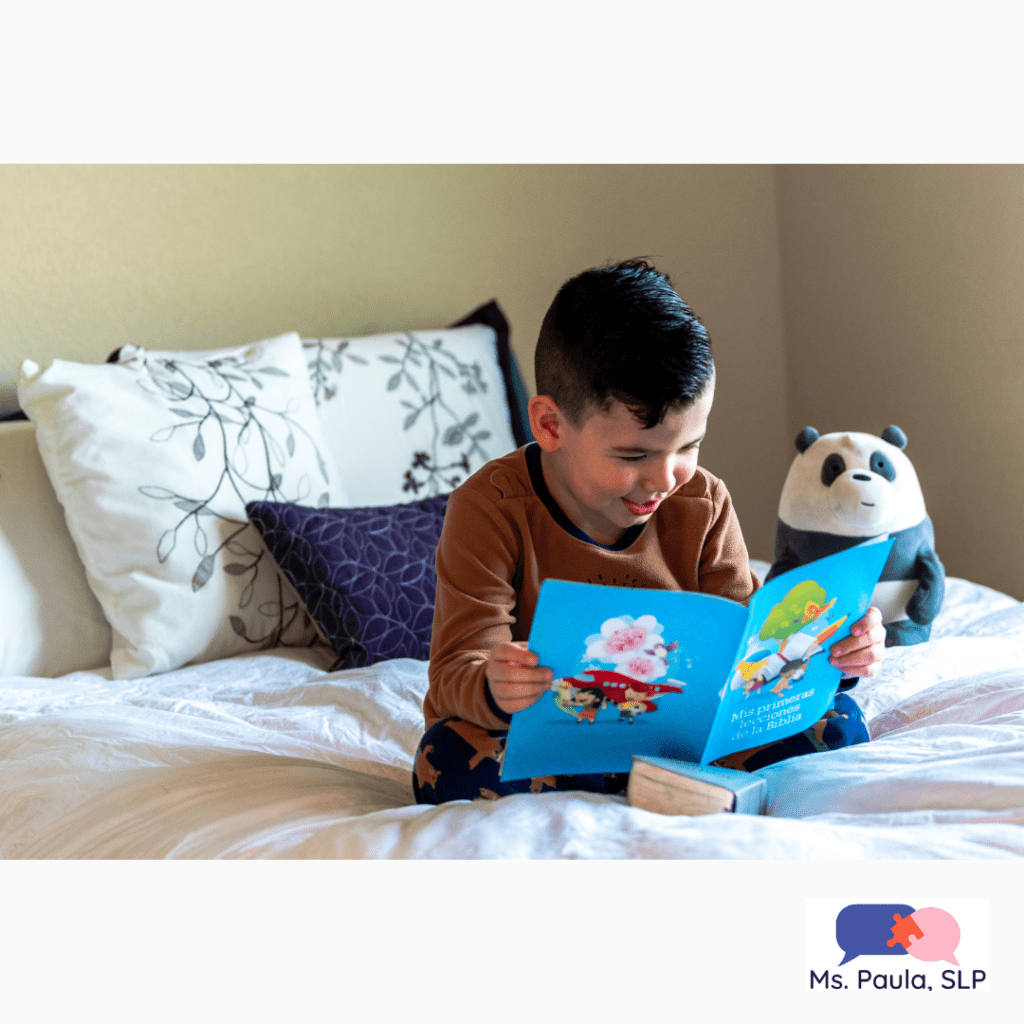Pediatric speech therapy is widely accepted by parents in the US as an effective method to help their children address delays in speech and other communication challenges. An overwhelming majority of children who receive speech therapy show remarkable improvements and go on to develop as-expected compared to children who never receive such therapy. There are several ways pediatric speech therapy supports your child’s development. Today we talk about four in particular.

Why would a child need speech therapy?
If a child is experiencing delays in communicating, then he or she may benefit from speech therapy. If they are having trouble responding to your voice, or do not seem to comfortably understand your words, they may need additional help. There are a variety of signs that could indicate that your child may benefit from speech therapy sessions.
4 Ways Pediatric Speech Therapy Supports Your Child’s Development
Let’s take a look at four specific ways that speech therapy supports your child’s development.
#1 – Improving communication so that children can express their needs, wants, ideas, and feelings more effectively.
Imagine having an entire spectrum of feelings and emotions and being unable to express them. How do you think that would feel? How would you convey to those you loved what you needed from them? It would feel pretty frustrating, wouldn’t it? Not to mention isolating and even helpless.
Now imagine how your child feels when they are dealing with that kind of limited ability to express themselves. And as children, they don’t know what’s happening. They only know that not being able to communicate is a bad feeling. This can show itself through behavior problems as they try to find a way to express their frustration. If left unchecked, this can develop into more serious problems down the road. That’s why it’s critical to deal with this head on right now. Don’t let it fester and build because it can detrimentally affect your child’s development.
When pediatric speech therapy is employed, a child has the chance to learn skills through play and other exercises that build confidence. A pediatric speech therapist will find specific ways to guide your child through the frustration into a new reality of feeling understood and accepted. As a result, your child may feel less anxious, stressed or frustrated and will begin to engage in a productive way with you and their peers.
#2 – Helping children speak clearly so that their speech is understood by all
Would it surprise you to know that from a very early age, children feel the stigma of not speaking clearly? Their speech patterns are picked up quickly by their peers and can be the source of taunting and other negative behaviors. There’s nothing worse as a parent than seeing your child hurt by others who would judge them. Even young children can feel this dynamic.
Do you remember a time when you were picked on or teased as a child? How did that make you feel? And why do you still remember the details of that event all these years later as an adult?
It’s because it was a significant event in your development growing up. It was most likely painful enough for you to never forget it. Certainly, you don’t want your child to experience the same pain you went through.
It can be said that childhood is what you spend the rest of your life trying to get over. And if that’s true, many of us wish that we could go back and right the wrongs that were done to us. Obviously, we know we can’t, but as parents we are able to give our children what we could not find ourselves. We have a certain amount of control that as children we didn’t have.
When children learn how to speak clearly it builds their confidence. When they know that others can understand them, they feel validated that their feelings and thoughts are being considered. There’s no greater gift than to help your child develop communication skills at a young age. A pediatric speech therapist can help them achieve this.
#3 – Preparing children for school so they can learn how to communicate with peers
Arguably, this is one of the more important reasons to help your child develop communication skills. By the time they reach school age, children will definitely need to know how to communicate with each other in order to build those friendships and bonds. They’ll have to know how to communicate with their teacher to be able to learn new concepts. And they’re going to have to know how to ask for what they need when in an environment with other children. These are all important skills that should be present when a child enters school.
When a child is inadequately prepared to enter school communicating effectively, it causes a delay in learning and negatively impacts the child because they feel inadequate. Again, feelings of stress and anxiety and frustration can creep up on them. They’re so young that they don’t understand what they’re feeling, only that it feels unpleasant to them. Confusion ensues and suddenly we’re right back where we started. The child cannot focus on learning because they cannot effectively communicate with other students or the teacher.
Working with a pediatric speech therapist, a child has a better chance of developing the skills necessary to start school with the skills they need to communicate with each other. Through different techniques explored together, the child and the speech therapist will begin to discover a path that allows the child to express his or her emotions while communicating what he or she wants. As more of these skills are practiced, the child gains confidence in their own communication abilities and begins to engage in activities. Positive behavior soon follows and many times replaces negative behavior, if present.
#4 – Increasing self-esteem and independence so your child can advocate for themself
This is where we find the most noticeable change in your child. In fact, many children start developing ownership over how they communicate with others once they’ve been shown how they best communicate in general. It is not uncommon to see them insist on answering for themselves or wanting to do many of the exercises by themselves. This is a terrific sign that their self-esteem is building and they’re learning how to become independent when communicating with others.
When children are taught to master these traits young, this translates into adolescence and onto adulthood. As a result, preparing your child now to instill confidence in themselves is to raise a future adult that can advocate for themselves. Giving them the gift of speech therapy means you are taking control of any delay issues and rerouting that into a positive and nurturing experience that your child is more likely to benefit from. This is especially true when they see you involved with them throughout the therapy sessions.
One of the goals of pediatric speech therapy is to have your child become as self-sustaining as possible when it comes to communicating how they feel and what they would like from others.
Ms. Paula, SLP Bilingual Speech + Language Services offers Spanish speech therapy, bilingual speech therapy among other types of therapies mentioned above. Contact us here to see how we can help you.

